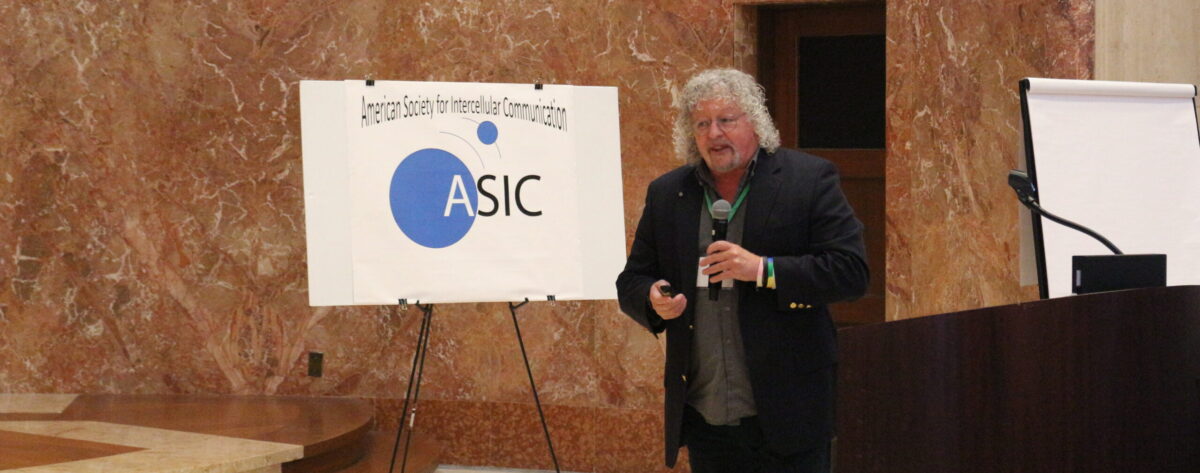PRESIDENT and VICE PRESIDENT
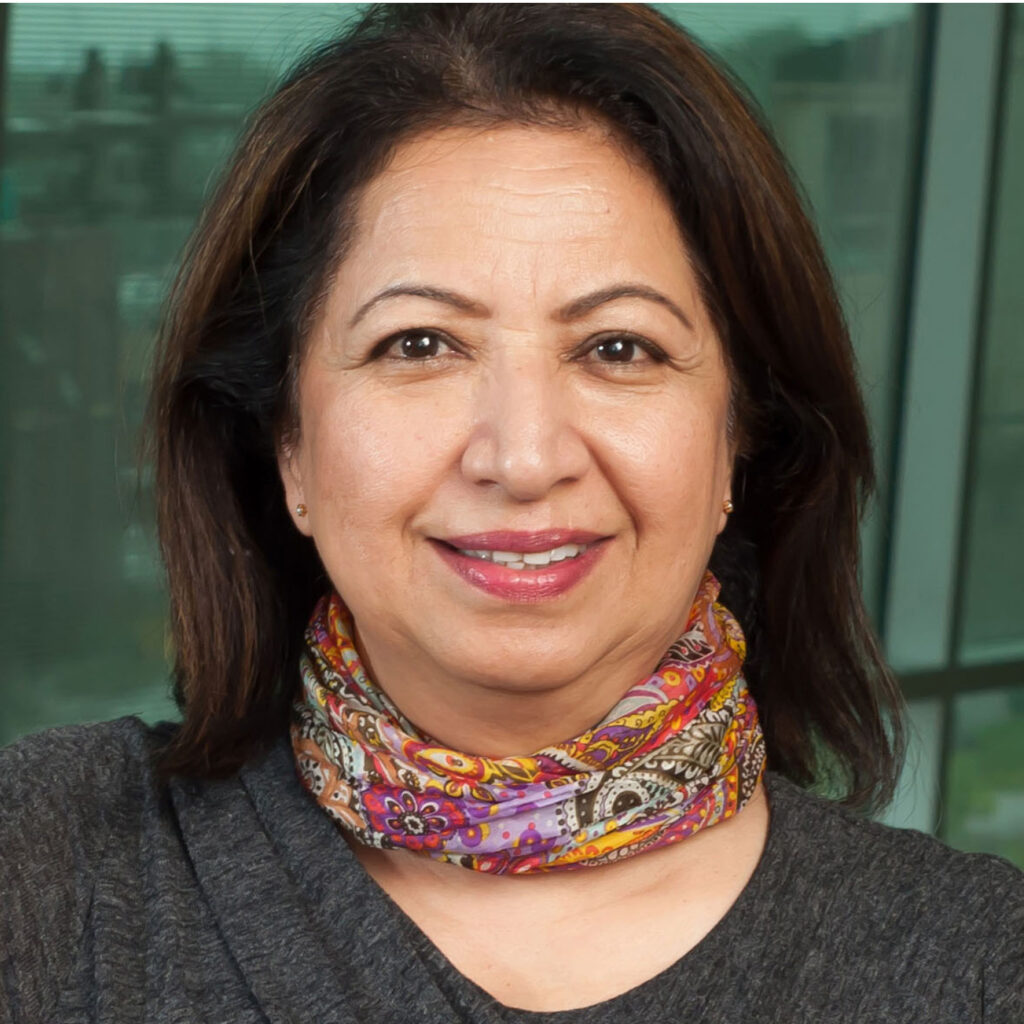
PRESIDENT: Shilpa Buch, PhD
Professor of Pharmacology and Experimental Neuroscience
University of Nebraska Medical Center
PhD, 1982, Microbiology
University of Baroda, India
Dr. Buch’s post-doctoral training focused on the pathogenesis and therapeutic approaches to the toxic effects of oxygen therapy in premature babies. She then became involved in HIV and NeuroAIDS research at the Kansas University Medical Center where she spearheaded the program in SIV pathogenesis and drug abuse. Throughout her career, Dr. Buch has contributed to an increased understanding of the molecular basis of HIV-associated neurocovitive disorders (HAND) which have greatly increased our appreciation for interactions among glia, neurons, and components of the blood-brain barrier in HAND. At UNMC, Dr. Buch received the scientist laureate award for her outstanding research contributions to the field.
Dr. Buch has published over 145 peer-reviewed articles in the area of molecular pathogenesis of HIV in many highly regarded journals, has secured federal and local grants to support her research on HIV pathogenesis, and has mentored students of every level, from undergraduates to junior faculty.
Research Interests: Identifying novel therapeutic strategies that may enhance neuronal function and survival in NeuroAIDS with possible implications in other neurodegenerative diseases.
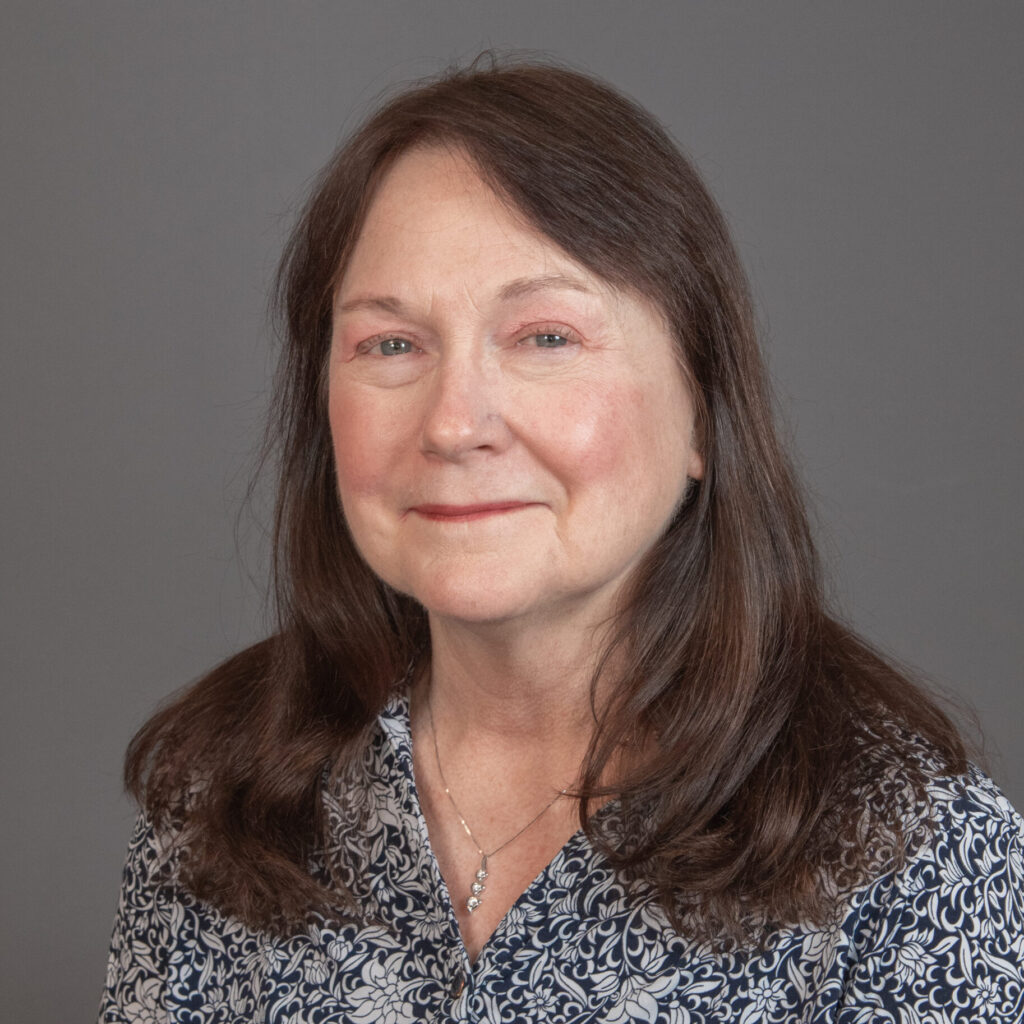
Vice-President: Julie Saugstad, PhD
Professor, Department of Anesthesiology & Perioperative Medicine, Affiliate Faculty, Department of Molecular & Medical Genetics
Oregon Health & Sciences University
PhD, 1991, Biochemistry & Molecular Biology
University of Oklahoma Health Sciences Center
Dr. Saugstad cloned the genes for mouse metabotropic glutamate receptors 7 and 8 (mGluRs), then studied the regulation of signaling by mGluRs. Her lab was the first to show that miRNAs are differentially regulated by ischemic preconditioning in mouse brain, and the first to show a miRNA signature common to males and females in stroke, and conversely that distinct miRNAs are regulated by stroke in male vs. female mouse brain. Her studies were also the first to identify miRNAs that discriminate Alzheimer’s disease (AD) from controls in cerebrospinal fluid (CSF) from living donors, that combinations of miRNAs serve as sensitive and specific biomarkers for AD, that adding a reference marker (such as APOEɛ4 genotype) and CSF Aβ42:T-Tau ratios to miRNA combinations increases classification performance for AD, and that a subset of miRNAs show a linear trend of decreasing median expression from controls to mild cognitive impairment to AD. Her current studies have shown that the AD miRNAs in CSF work better to discriminate AD from controls in plasma, and her studies have now expanded to include the role(s) of extracellular vesicles and their cargo in AD and neurodegenerative diseases.
Research Interests: Cellular and molecular mechanisms of signaling in the brain; Role of microRNAs in CSF and plasma as AD biomarkers; Contribution of EVs and their cargo as mediators of intercellular communication and their potential role in altered signaling in dementia.
TREASURY

CHAIR: Navneet Dogra, PhD
Assistant Professor, Genetics and Genomic Sciences and Pathology, Molecular and Cell Based Medicine, Member of the Icahn Genomics Institute
Mt. Sinai Hospital
PhD, 2014, Chemistry & Biochemistry
Southern Illinois University
Dr. Dogra has held positions at IBM Research and Yale University to drive translational research in “liquid biopsy in cancer” and “drug delivery” by bringing together clinical experimental oncology and the development of novel tools for the biosensing of genetic markers. Dr. Dogra recently filed for two US patents relating to “exosomes nanoparticles assisted drug delivery” and “tumor heterogeneity”.
Research Interests: Exosomes and extracellular vesicles; Cell-Free DNA, RNA; Proteins, bioengineering, and viruses.

CO-CHAIR: Nykia Walker, PhD
Assistant Professor, Biological Sciences
University of Maryland, Baltimore County
PhD, 2018, Cell Biology, Neuroscience & Physiology
Rutgers University
Dr. Nykia Walker’s research centers on breast cancer metastasis, investigating how exosomal cargo modulates signaling pathways in recipient stromal cells to drive their reprogramming into pro-metastatic and chemoresistant phenotypes. By characterizing the RNA and protein cargo of tumor-derived exosomes, her work identifies key molecular drivers that activate signaling cascades involved in immune suppression, extracellular matrix remodeling, and cellular dormancy. Simultaneously, we explore how these signaling events lead to long-term reprogramming of the tumor microenvironment, facilitating metastatic colonization and eventual relapse. This dual approach not only elucidates the immediate impacts of exosome signaling but also provides insight into the enduring changes in cell behavior that underpin disease progression.
Her career began at Merck & Co., where she developed proteomics assays to support biomarker discovery and early-phase clinical trials. She received her Ph.D. at Rutgers University, where her research revealed how miRNAs in mesenchymal stem cell-derived exosomes regulate macrophage polarization and cancer stem cell dormancy, providing new insights into breast cancer progression. As a postdoctoral fellow at the University of Chicago, she expanded her expertise in exosome biogenesis, investigating how extracellular vesicle cargo is selectively packaged to influence the tumor microenvironment, with a focus on metastatic breast cancer models.
Research interest: Understanding how tumor derived EV reprograms naive cells to become pro-metastatic modulating the signaling pathways in stromal cells, driving the tumor microenvironment that contribute to metastatic colonization and relapse.
SECRETARY

CHAIR: Olesia Gololobova, PhD
Research Associate & Co-Founder and Manager of EXCEL – EXtracellular Particle Characterization & Enrichment Lab
Johns Hopkins University School of Medicine
PhD, 2015, Doctor of Philosophy, Physical Chemistry
Joint Institute for High Temperature
Olesia Gololobova, PhD, MEng, is a faculty member at Johns Hopkins University, where she manages EXCEL: the EXtracellular Vesicles Characterization and Enrichment Lab under the guidance of Dr. Kenneth Witwer. Dr. Gololobova earned her PhD in Physical Chemistry from Russian Academy of Sciences, focusing on the optical and mechanical properties of nanoparticles. Before joining the JHU School of Medicine, Olesia directed a Nanoparticle Characterization Core Facility, specializing in the comprehensive characterization of biological materials, particularly extracellular vesicles. Her current research endeavors aim to advance the field through innovative analytical techniques, with a keen interest in using extracellular vesicles and particles as potential biomarkers for neurodegenerative and neurodevelopmental disorders.
Research Interests: Developing and applying advanced characterization methods for enveloped viruses, extracellular vesicles, and related particles; Elucidating the roles of extracellular vesicles in immunity, neurodegeneration, and neurodevelopment; exploring EV-based therapeutic strategies.

CO-CHAIR: Tanina Arab, PhD
Associate Research Scientist, Neuroscience
Yale School of Medicine
PhD, 2019, Doctor of Philosophy in Life and Health Sciences
University of Lille, France
Tanina earned a Bachelor’s in Biochemistry from Mouloud Mammeri University, Algeria, and a PhD in 2019 from Lille University, France, where she studied Extracellular Vesicles in microglial cells. During her postdoctoral training at Johns Hopkins, she advanced research on brain-derived EVs for biomarker discovery and led instrumental and method comparison projects. Now an Associate Research Scientist at Yale’s Neuroscience Department, she leverages induced pluripotent stem cells to model neurodegenerative diseases. Full publications can be accessed here.
Research Interests: Role of Extracellular Vesicles (EVs) in glia-neuron communication in health and disease; Utilizing in vitro models, including iPSCs, for disease modeling; Advancing personalized medicine through high-throughput biomarker discovery and drug development powered by artificial intelligence.
MEMBERSHIP

CHAIR: Partha Chandra, PhD
Assistant Professor in Pharmacology
School of Medicine, Tulane University
PhD, 2003, Doctor of Philosophy in Agricultural Chemistry
University of Calcutta, India
Dr. Chandra has a background in virology, molecular biology, extracellular vesicles, and neuropathogenesis. His research focuses on understanding the molecular link between circulating extracellular vesicles and aging/HIV-associated dysfunction in cerebral microvessels (end arterioles, capillaries, and venules) and neurovascular unit in the brain.
Recently, Dr. Chandra reported that proteins in extracellular vesicles (EVs) of HIV-infected patients/rhesus macaques have a link to neuropathogenesis possibly due on dysregulation of mitochondrial function of brain microvascular endothelium and blood-brain barrier (BBB) integrity. Dr. Chandra’s group reported that upregulated fibrinogen during aging leads to adverse protein profile changes, including mitochondrial respiration, glycolysis, mitochondrial fission/fusion, and BBB integrity via a dynamin-related protein 1-dependent pathway in mice brain microvessels. Dr. Chandra’s team is testing the preclinical efficacy of mesenchymal stem cells (MSC) or MSC-derived EVs as a novel therapy for protecting the aging/HIV-associated dysfunction in brain microvasculature.
Previously, Dr. Chandra reported that the severity of chronic liver disease due to hepatitis B virus infection is significantly correlated with its different genotypes and sub-genotypes and the mutations in the viral genome. Dr. Chandra and his team developed in vitro and in vivo hepatitis C virus infection models to understand the role of viruses and host factors for the development of chronic infection and pathogenesis. Moreover, Dr. Chandra reported highly promising MSC-based therapy for latent HIV-1 reactivation and developed a new humanized mouse model (NSG/α-Galnull) to study the HIV-associated neuropathogenesis.
Research Interests: Identifying molecular pathway(s) for aging/HIV-associated neuropathogenesis; developing novel therapeutic strategies that may enhance neuronal function and survival in aging NeuroAIDS with possible implications in other neurodegenerative diseases.

CO-CHAIR: Nicole (Nikki) Noren Hooten, PhD
Senior Associate Scientist
NIA, NIH
PhD, 2002, Doctor of Philosophy, Cell and Developmental Biology
University of North Carolina at Chapel Hill
Dr. Noren Hooten pursued postdoctoral work at the Sanford Burnham Prebys Medical Discovery Institute in La Jolla, CA. She joined the National Institute on Aging, National Institutes of Health in 2008. Currently, as a Senior Associate Scientist in the Laboratory of Epidemiology and Population Sciences, Nikki uses an integrated, interdisciplinary approach to study how oxidative stress, post-transcriptional mechanisms and other pathways contribute to health disparities, aging and age-related diseases. Recently, she has been interested in utilizing extracellular vesicles as non-invasive biomarkers of aging and age-related diseases. She poses these questions in the context of human aging through her work with the Healthy Aging in Neighborhoods of Diversity Across the Life Span (HANDLS; https://handls.nih.gov/) study. Nikki serves on the Editorial Boards of the Journal of Extracellular Vesicles and Ageing Research Reviews and has won several awards throughout her career including the NIA Women in Science Excellence in Scientific Research Award.
Research Interests: Molecular mechanisms underlying health disparities in aging and age-related disease; EVs as biomarkers of aging and age-related disease; Circulating cell-free mitochondrial DNA as a blood biomarker.
MERIT, EXCELLENCE and INTELLIGENCE (MEIC)
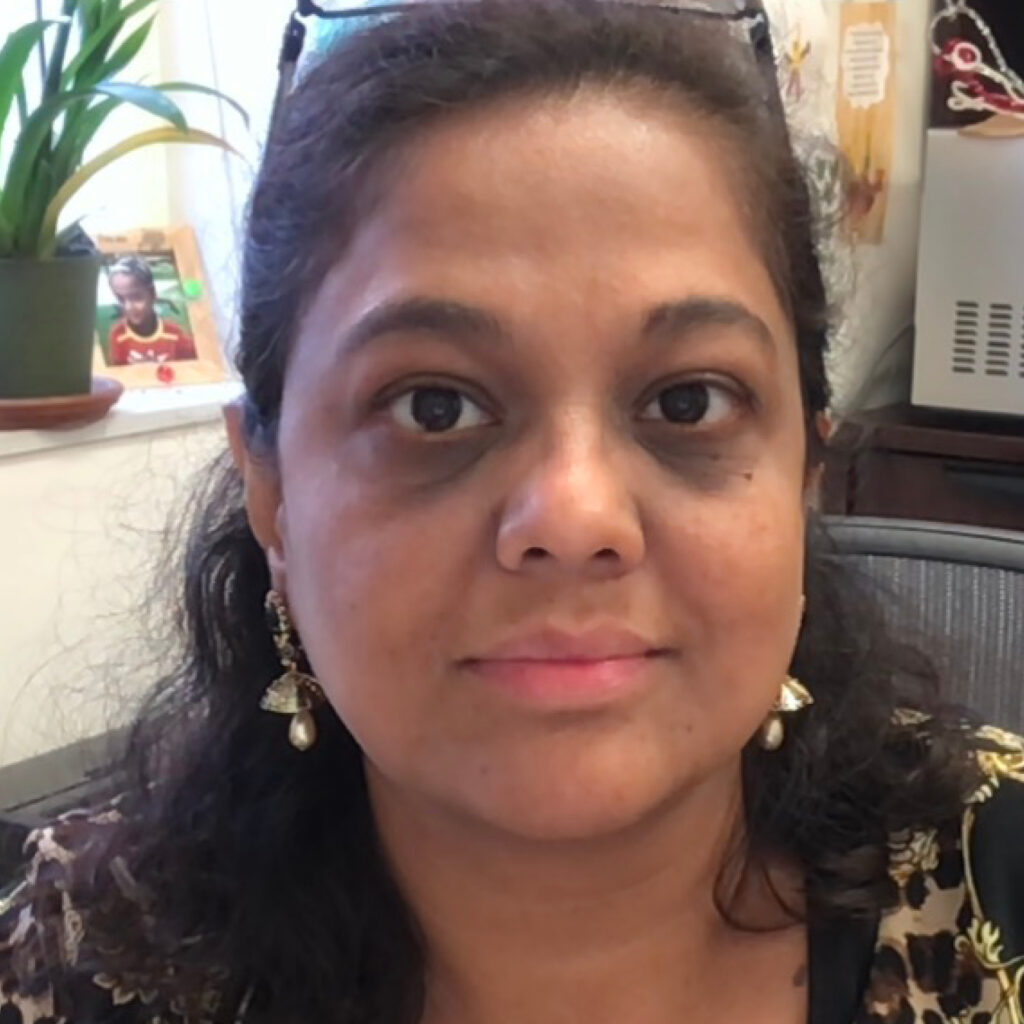
CHAIR: Hameeda Sultana, PhD
Associate Professor, College of Veterinary Medicine
University of Tennessee
PhD, 2004, Medical Biochemistry
University of Cologne
Dr. Sultana received postdoctoral training in vector-borne diseases at Yale University School of Medicine and the Howard Hughes Medical Institute. She was promoted to Associate Research Scientist after receiving an independent RO3 award from NIH/NIAID to study tick-pathogen interactions. In 2010, she obtained a tenure-track assistant professor position at the Center for Molecular Medicine, Department of Biological Sciences, Old Dominion University (ODU) and in 2012, she received tenure and promotion to associate professor at ODU. Her research is in the field of vector-borne diseases where she laid the foundation for novel investigations on arthropod exosomes in facilitating transmission of tick and mosquito-borne flaviviruses from vector to the vertebrate host. Her laboratory was the first to provide evidence that tick/mosquito-borne flaviviruses use arthropod-derived exosomes for transmission of full-length RNA genomes, proteins/poly-proteins from vector to the mammalian cells and that these viruses use exosomes for dissemination within the vertebrate host. She has received R01 funding from NIH/NIAID to continue this line of research on arthropod exosomes.
In 2020, she moved her research laboratory to University of Tennessee at Knoxville where she is a tenured associate professor in the Department of Biomedical and Diagnostic Sciences and continues her research on arthropod exosomes and flavivirus host interactions. Dr. Sultana has received numerous awards and has won the ATCC’s 2022 Innovation Challenge for her innovative research on the function of hTERT MSC exosomes on flavivirus replication.
Dr. Sultana has published in several high-impact journals and serves as an editorial board member and a peer-reviewer for many Microbiology and Virology journals. She also supports NIH study sections and special emphasis panels as a potential reviewer.
Research Interests: Various aspects of infectious diseases and host-pathogen interactions that are directly related to human and animal health, specifically vector-borne viral diseases involving flaviviruses as pathogens and ticks/mosquitoes as the primary vectors of medical importance.

CO-CHAIR: Mark Santos, PhD
Research Laboratory Scientist
College of Osteopathic Medicine, Touro University
PhD, 2014, Pathology/Experimental Pathology
University of Mississippi Medical Center
Dr. Santos began his postdoctoral fellowship at Roseman University in Las Vegas where he identified the fate of extracellular vesicles upon entering target cells. His projects have focused on characterizing the proteins involved in transporting extracellular vesicle cargo into the nucleus of cells and developing techniques to visualize these vesicles in fixed and live samples by super-resolution STORM and confocal microscopy. Dr. Santos has also studied the effects of extracellular vesicle uptake on gene expression levels, and he hopes to establish extracellular vesicles as potential biomarkers in cancer and other diseases.
Research Interests: Extracellular vesicle characterization; Cell-to-cell communication; Anti-cancer and anti-metastasis drug development; Super-resolution STORM microscopy.
ANNUAL MEETING
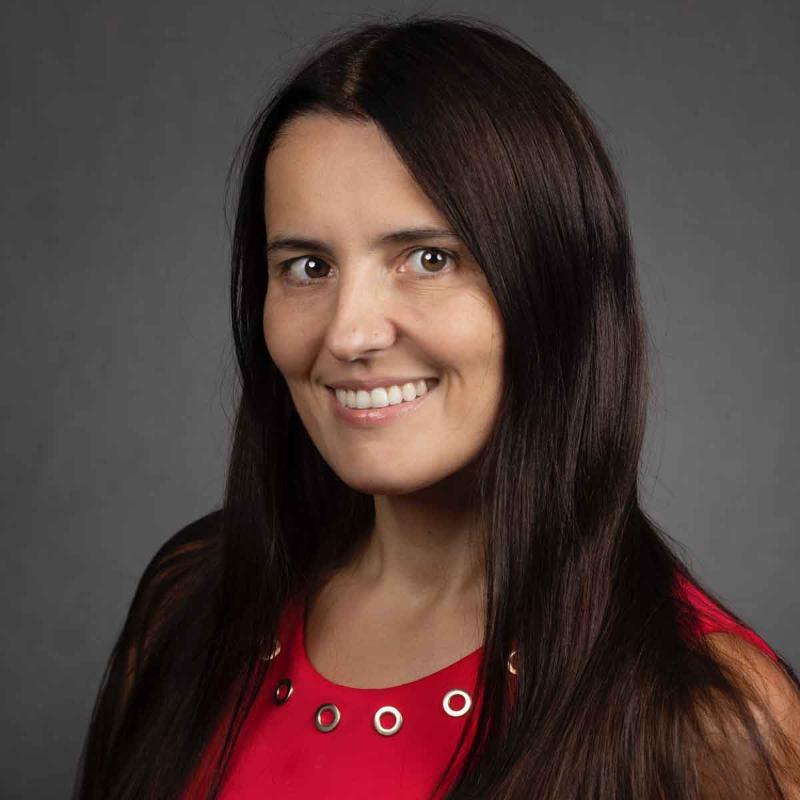
CHAIR: Mariola Ferraro, PhD
Associate Professor, Microbiology & Cell Science
University of Florida
PhD, 2010, Clinical Medicine
University of Oxford, Nuffield
Dr. Ferraro’s research centers on extracellular signaling in host-pathogen interactions, focusing on the roles of extracellular vesicles, bioactive lipids, and endocannabinoid signaling in immune responses. The Ferraro Lab investigates novel host-pathogen interactions in Gram-negative infections, particularly the functions of host extracellular vesicles, bacterial outer membrane vesicles, and other signaling molecules in enteric infections. Dr. Ferraro’s team explores vesicle-mediated antigen trafficking and potential applications in enzyme replacement and other therapeutic strategies. Her work also characterizes the roles of bioactive lipids, such as prostaglandins and endocannabinoids, in macrophage polarization and bacterial clearance, while examining how bacterial pathogens exploit lipid signaling through virulence factors. Using multi-omics approaches, including chemical proteomics and lipidomics, her lab aims to uncover the molecular mechanisms of host-pathogen interactions and develop innovative host-directed therapies.
Research Interests: Host extracellular vesicles; bacterial vesicles; lipid signaling; endocannabinoid system; Salmonella and Yersinia infections; immune modulation; host-directed therapies; multi-omics approaches.

CO-CHAIR: My Mahoney, PhD
Professor, Pharmacology, Physiology & Cancer Biology
Thomas Jefferson University
PhD, 1993, Molecular & Cellular Biology
University of Massachusetts, Amherst
Dr. Mahoney’s research aims to explore how molecular and cellular signaling during normal development is subverted to pathogenic signaling during disease progression. Her laboratory employs innovative technology and multi-disciplinary approaches to identify molecular targets for translational applications. Her work has shown that intercellular communication, through mechanisms like cell-cell adhesion, cytokine release, and the secretion of extracellular vesicles, is highly coordinated and can serve as diagnostic and prognostic biomarkers for healthy and disease states. For over 26 years, she has focused on the roles of desmosomal proteins in autoimmune, infectious, and inherited diseases associated with fragility and abnormality in diverse tissues such as the skin, hair, and heart. She has also developed genetically modified animal models to study these human diseases.
Her research has identified cadherin desmoglein 2 (DSG2) as a novel biomarker for epithelial-derived malignancies, demonstrating that DSG2 enhances cell proliferation and malignant transformation through multiple synergistic mitogenic signaling pathways and trigger changes in the cellular transcriptome and secretome. The discovery that DSG2 is overexpressed in many cancers created a window of opportunity for targeted elimination by DSG2-specific CAR-T cell therapy. An exciting paradigm shift is the recent discovery that DSG2 modulates the biogenesis of extracellular vesicles and modifies their mitogenic content, including miRNAs and proteins, providing a mechanism for cells to modulate their microenvironment. Her lab is actively engineering extracellular vesicles as therapeutic strategy to target cancer and inflammatory diseases.
Research Interests: Desmosomes; Extracellular vesicles; Epithelial-derived cancers; CAR-T therapy; Cytokines miRNAs.
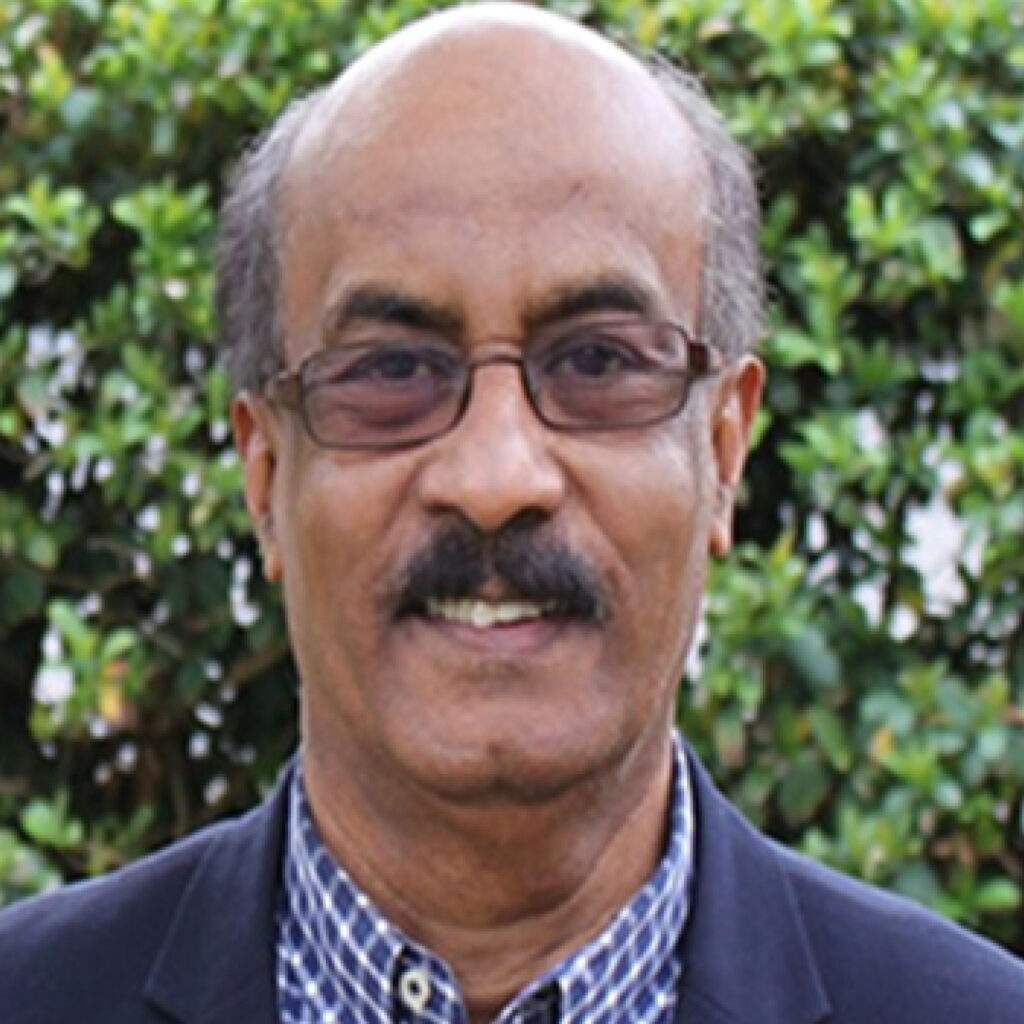
Meeting Member: Prasun Datta, PhD
Associate Professor of Microbiology and Immunology
Tulane University
PhD, 1990, Molecular Cytogenetics
Calcutta University
Dr. Datta’s research focuses on elucidating the role of metabolism in HIV-1 biogenesis and survival in latent CNS reservoirs, and the effects of HIV-1 induced neuro-inflammatory cytokines and small extracellular vesicles released from HIV-1 infected macrophage and microglia on the regulation of astrocyte glutamate transporter, EAAT2 and neurodegeneration. He is also interested in assessing the impact of substances of abuse such as opiate and cocaine on the crosstalk between cellular metabolism and epigenetics in HIV-1 biogenesis in macrophage and microglia and astrocyte EAAT2 and non-coding RNA regulation. We are also interested in characterizing Outer Membrane Vesicles (OMV) from the Saliva of rhesus macaques infected with SIV to elucidate OMV interaction with immune cells and other cells in the oral cavity.
Research Interests: HIV-1/SIV; Extracellular vesicle; miRNA; Neurodegeneration; Saliva OMVs.

Ursula Saundau, PhD
Instructor
Oregon Health & Science University
PhD, 2006, Biomedical Neuroscience
Colorado State University
Dr. Sandau studies extracellular vesicle (EV) miRNAs and their role in neurological dysfunction in Alzheimer’s disease. She has identified that in Alzheimer’s disease both sex and Apolipoprotein E genotype impact miRNA expression levels in human cerebrospinal fluid (CSF) EVs. Also, that CSF EV miRNAs increased in Alzheimer’s disease are predicted to repress the translation of proteins integral to synaptic plasticity based on their roles in presynaptic neurotransmitter release and postsynaptic NMDA receptor trafficking and signaling. Her current studies are aimed to demonstrate that in Alzheimer’s disease the miRNAs increased in CSF EVs are also increased in the human brain. Also, that changes in brain miRNAs relate to Alzheimer’s disease pathophysiology including abnormal synapse formation.
Research Interests: Alzheimer’s disease, Extracellular vesicles, MiRNAs, Synaptic plasticity and transmission
GRANT-FUND COMMITTEE
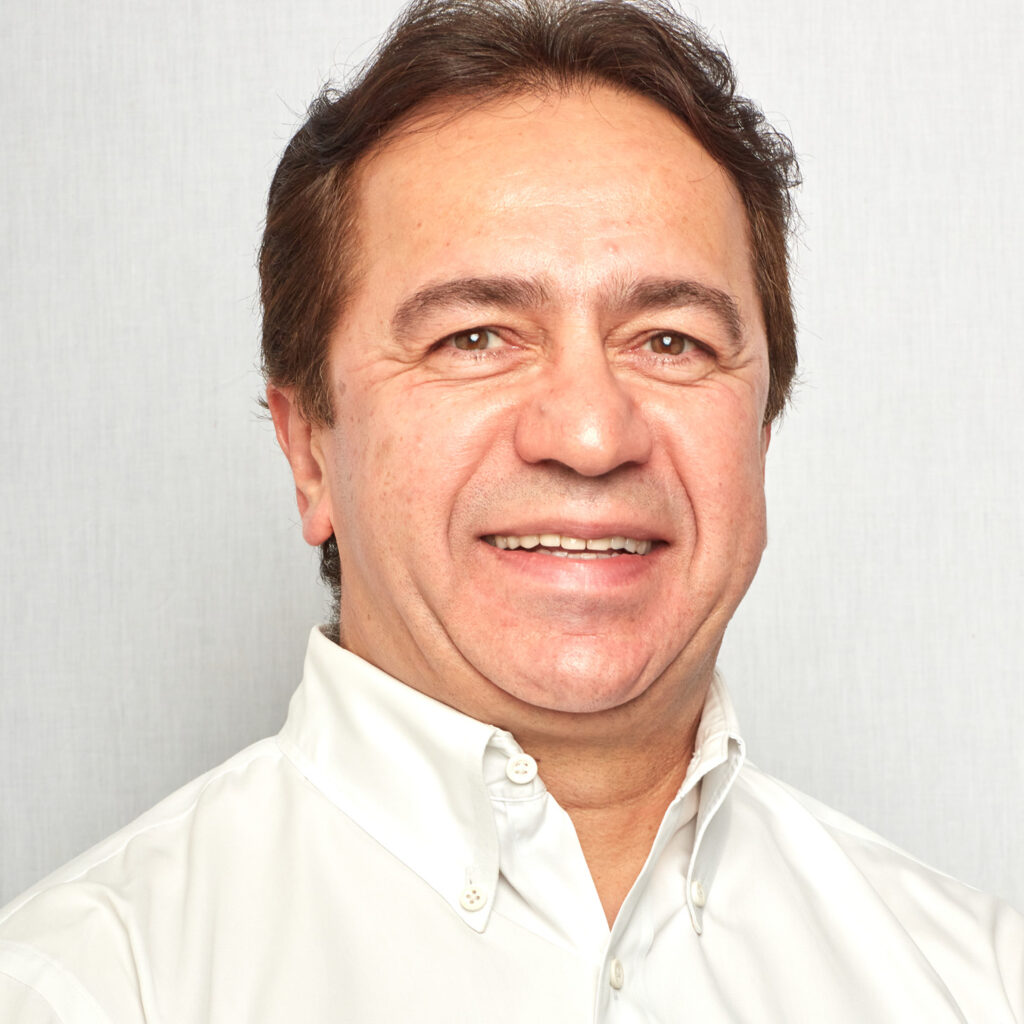
Fatah Kashanchi, PhD Professor of Virology
Director, Laboratory of Molecular Virology
George Mason University (GMU)
PhD, 1991, Microbiology
University of Kansas
Dr. Kashanchi received his Ph.D. in 1990 under the supervision of Dr. Charles Wood who also worked with the Nobel Laureate, Dr. Susumu Tonegawa at MIT. He then moved to the National Cancer Institute and continued his work on RNA viral infections where he collaborated with the late John Brady on HIV and HTLV biology. For the past eighteen years, the Kashanchi lab has been interested in understanding the mechanism of viral gene expression in human viruses and how the virus and the host control the dynamics of fundamental machineries needed for viral replication and/or host survival. His lab also has experience with biochemical pathways that leads to transcription and chromatin remolding, including epigenetics using reconstituted machineries. The Kashanchi lab has published extensively in many peer-reviewed journals (more than 250 papers; h-index 76). In recent years, the lab has focused on Extracellular Vesicles (i.e., exosomes) mainly from latent virally infected cells as well as EVs from stem cells used for repair and delivery of gene editing and RNA silencing complexes into T-cells and myeloid infected cells
Dr. Kashanchi has obtained NIH and institutional funding for his research since his departure from NIH/NCI in 2000. He has also served on more than 110 NIH and related panels reviewing R, K, U and P proposal.
Research Interests: Human retroviruses; Biodefense viral agents; Cell cycle; Host-pathogen interactions; Small molecule and peptide inhibitors against transcription machinery; RNAi machinery and its components; Proteomics and metabolomics; Humanized mouse models; Extracellular vesicles including exosome

Navneet Dogra, PhD
Assistant Professor, Genetics and Genomic Sciences and Pathology, Molecular and Cell Based Medicine, Member of the Icahn Genomics Institute
Mt. Sinai Hospital
PhD, 2014, Chemistry & Biochemistry
Southern Illinois University
Dr. Dogra has held positions at IBM Research and Yale University to drive translational research in “liquid biopsy in cancer” and “drug delivery” by bringing together clinical experimental oncology and the development of novel tools for the biosensing of genetic markers. Dr. Dogra recently filed for two US patents relating to “exosomes nanoparticles assisted drug delivery” and “tumor heterogeneity”.
Research Interests: Exosomes and extracellular vesicles; Cell-Free DNA, RNA; Proteins, bioengineering, and viruses.

Susmita Sil, PhD
Assistant Professor, Department of Pharmacology & Experimental Neuroscience
University of Nebraska Medical Center
PhD, 2016, Neuroscience
University of Calcutta, India
Dr. Sil investigates the regulatory role of long non-coding RNAs on drugs of abuse/HIV in glial cells mediated neurodegeneration involving extracellular vesicles. Some of her recent studies focused on the HIV-associated co-morbidity of Alzheimer’s Disease. She has shown that HIV & opiates can induce astrocytic amyloidosis through a novel interaction of hypoxia-inducible factor-1 with long non-coding RNA BACE1-AS. Dr. Sil has published in 46 high-quality peer-reviewed journals including PlosBiology, Molecular Aspects of Medicine, and the Journal of Extracellular Vesicles.
Research Interests: Investigating the effects of different drugs of abuse and HIV on the mechanisms involved in glial cells mediated neurodegeneration involving cellular-crosstalk by extracellular vesicles; Investigating different molecular mechanisms leading to neuronal injury and dementia in drug addicts, HIV patients, and other neurodegenerative diseases.

Prasun Datta, PhD
Associate Professor of Microbiology and Immunology
Tulane University
PhD, 1990 Molecular Cytogenetics
Calcutta University
Dr. Datta’s research focuses on elucidating the role of metabolism in HIV-1 biogenesis and survival in latent CNS reservoirs, and the effects of HIV-1 induced neuro-inflammatory cytokines and small extracellular vesicles released from HIV-1 infected macrophage and microglia on the regulation of astrocyte glutamate transporter, EAAT2 and neurodegeneration. He is also interested in assessing the impact of substances of abuse such as opiate and cocaine on the crosstalk between cellular metabolism and epigenetics in HIV-1 biogenesis in macrophage and microglia and astrocyte EAAT2 and non-coding RNA regulation. We are also interested in characterizing Outer Membrane Vesicles (OMV) from the Saliva of rhesus macaques infected with SIV to elucidate OMV interaction with immune cells and other cells in the oral cavity.
Research Interests: HIV-1/SIV; Extracellular vesicle; miRNA; Neurodegeneration; Saliva OMVs.
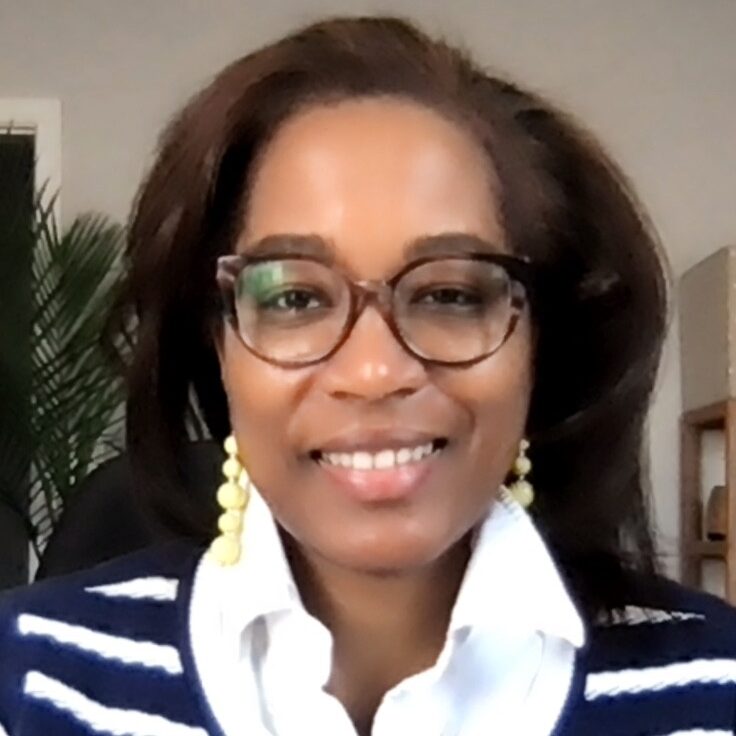
Nykia Walker, PhD
Assistant Professor, Biological Sciences
University of Maryland, Baltimore County
PhD, 2018, Cell Biology, Neuroscience & Physiology
Rutgers University
Dr. Nykia Walker’s research centers on breast cancer metastasis, investigating how exosomal cargo modulates signaling pathways in recipient stromal cells to drive their reprogramming into pro-metastatic and chemoresistant phenotypes. By characterizing the RNA and protein cargo of tumor-derived exosomes, her work identifies key molecular drivers that activate signaling cascades involved in immune suppression, extracellular matrix remodeling, and cellular dormancy. Simultaneously, we explore how these signaling events lead to long-term reprogramming of the tumor microenvironment, facilitating metastatic colonization and eventual relapse. This dual approach not only elucidates the immediate impacts of exosome signaling but also provides insight into the enduring changes in cell behavior that underpin disease progression.
Her career began at Merck & Co., where she developed proteomics assays to support biomarker discovery and early-phase clinical trials. She received her Ph.D. at Rutgers University, where her research revealed how miRNAs in mesenchymal stem cell-derived exosomes regulate macrophage polarization and cancer stem cell dormancy, providing new insights into breast cancer progression. As a postdoctoral fellow at the University of Chicago, she expanded her expertise in exosome biogenesis, investigating how extracellular vesicle cargo is selectively packaged to influence the tumor microenvironment, with a focus on metastatic breast cancer models.
Research interest: Understanding how tumor derived EV reprograms naive cells to become pro-metastatic modulating the signaling pathways in stromal cells, driving the tumor microenvironment that contribute to metastatic colonization and relapse.

